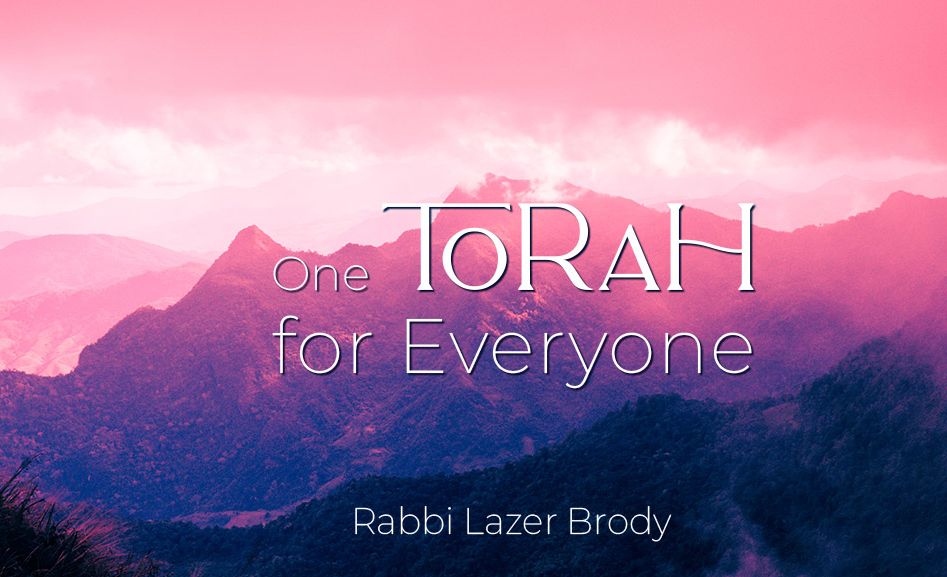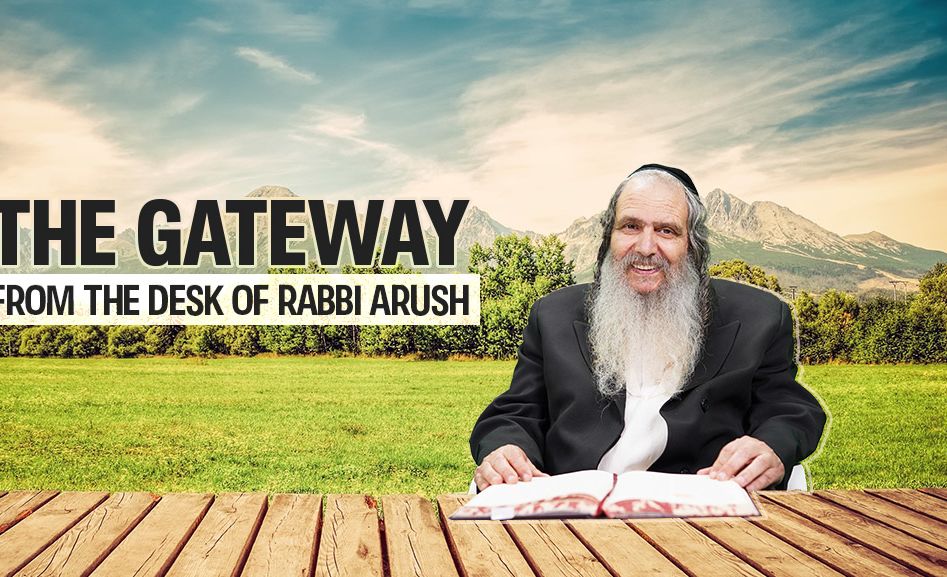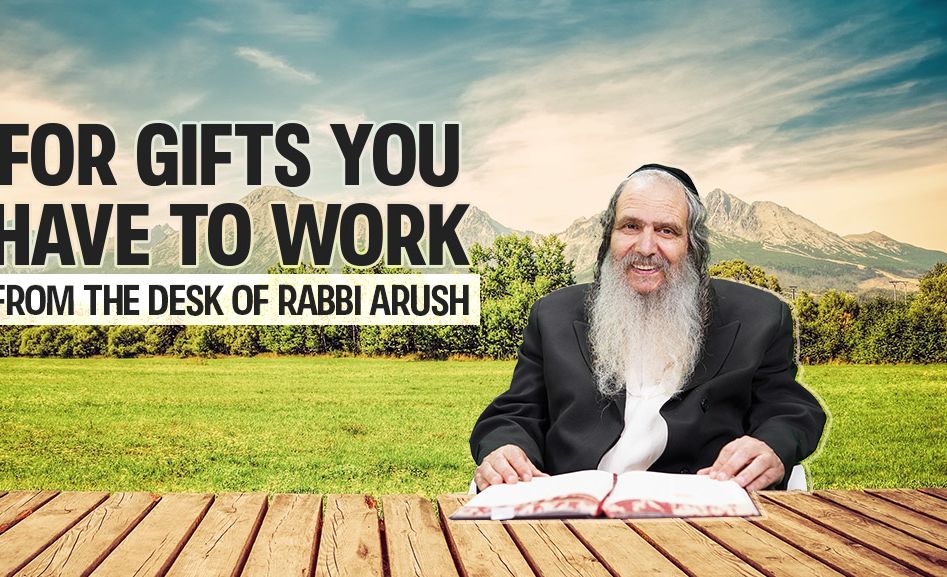
Don’t Miss the Train!
Sometimes in history, there is a moment when the sky opens up and Hashem grants special, special requests; the holiday of Shavuot is one such opportune time…

Any seasoned traveler knows that it’s better to be at the train station an hour early than thirty seconds late. If a person missed the next-to-the-last train, he or she certainly doesn’t want to miss the last train.
Spiritually – as we’ll soon see – the last train just might be pulling out of the station. We all want to be on board.
* * *
On the sixth day of Sivan, Hashem revealed Himself on Mount Sinai to the entire Jewish People. Our forefathers invoked a unfathomable measure of Divine compassion by declaring ahead  of time, na’aseh v’nishma – “we shall hear and we shall do.” In other words, they accepted the commitment of observing all that Hashem would command them even before they knew what He would command. So great was their trust in Hashem.
of time, na’aseh v’nishma – “we shall hear and we shall do.” In other words, they accepted the commitment of observing all that Hashem would command them even before they knew what He would command. So great was their trust in Hashem.
Not so the nations of the world. The Midrash teaches that Hashem offered the Torah to them as well, but they wanted to know ahead of time what the commandments were. When they found out, they all refused. One nation refused to refrain from adultery, another nation couldn’t live without stealing, and still a third nation couldn’t live a life without murdering others. None of them wanted the Torah.
It’s no wonder therefore that the Jewish People are Hashem’s chosen; they alone wanted the Torah, with no strings attached.
* * *
After thorough preparation, our forefathers prepared themselves to receive the Torah. Moses ascended on Mount Sinai to receive the tablets of the Ten Commandments.
Since then, there has yet to be a sound-and-light show that came anywhere close to what happened that night on Mount Sinai. The sky opened up. All the curtains that concealed the Upper Worlds were removed. Shofars blasted, thunder roared, and lightning danced all over the firmament. Suddenly, Hashem’s voice reverberated from 72 different directions – everyone could feel each inner organ trembling with a mixture of indescribable fear and awe. Two million Jews heard Hashem declare the First Commandment – the commandment of emuna – “I Am the Lord your G-d…”
The Midrash tells us that at that point, there souls could not remain in their bodies. Hashem had to send battalions of angelic paramedics to force each Jew’s soul back in his body.
Then Hashem bellowed out the Second Commandment – the commandment that prohibits idolatry – “You shall have no other god…”
Once again, the angels had to force the souls of the trembling, awestruck Jews back into their bodies.
The Jews could no longer bear hearing Hashem’s unmitigated voice. They pleaded with Moses, “Please, we can’t stand this! You Moses, ascend the mountain and receive the rest of the commandments from Hashem; then return and teach them to us!”
Hashem was delighted with the people’s reaction. He told Moses (Deuteronomy 5:26), “Halvai, if only they would have yira, the awe of Me in their hearts so that they would never sin, for their benefit and for the benefit of their children until the end of time!”
The Gemara in the first chapter of tractate Avoda Zara argues about which “benefit” in the above passage Hashem was referring to. One opinion claims that they would never die, but the Gemara refutes that. Our sages come to the unanimous conclusion that Hashem would give us complete respite from our enemies. When the nation as a whole learns Torah and observes Hashem’s commandment as in the days of King Hezekiah, Hashem deals personally with our enemies so that we can continue to service Him – according to the free choice we have made – unhindered.
So why don’t we have yirat Shamayim, true awe of Hashem? For one of two reasons. Firstly, there are those who simply aren’t interested; they prefer a life of fantasy, good times, and bodily indulgence. Secondly, there are those who are interested but don’t ask Hashem for it. Deep down inside, they feel that if Hashem gives them yirat Shamayim, true awe, they won’t be rewarded for it.
The Gemara tells us that Moses reprimanded the Jewish People on the day he died for not seizing the opportunity on Mount Sinai to ask Hashem for an awe-filled heart. Moses calls them “ingrates” for not appreciating Hashem’s hinted offer, for when Hashem said, “If only they would have awe in their hearts,” He was waiting for the Jewish People to respond, “Yes, Hashem – please give it to us! Instead, they went the opposite direction and made the golden calf…
Haven’t we had enough of the golden calf? Aren’t we yet sick of a life of constant war, missile attacks, terror, and strife?
Oh no, but our arrogance gets in the way: we don’t want to beg Hashem for yirat Shamayim, true awe, because we think Hashem won’t give us the credit…
The Chazon Ish clarifies the above Gemara and comes to an amazing conclusion that sounds exactly like something Rebbe Nachman or Rebbe Natan would teach (see Chazon Ish, Orach Chayim, “Hashmatot”, chapter 156 at the end): if Hashem fulfills a person’s request as the result of that person’s continued and profuse prayer, then the accomplishment is credited to the person, for he achieved it with his own efforts.
We consequently learn from the Chazon Ish that prayer is just as much hishtadlut, or effort, as working in a factory or any other physical endeavor.
After Mashiach comes, in the nearest future may it be, amen, the value of teshuva and yirat Shamayim will go way down on the spiritual commodities market. Now is the time to ask for both, not when the truth becomes so readily apparent when once again, Hashem will reveal Himself to all of us. And, according to our sages, once we become a nation of G-d fearing people, our enemies and their weapons will evaporate like dew in the summer-morning sun.
Let’s take advantage of this Shavuot holiday when the sky once again opens above our heads to ask Hashem for real emuna and awe-filled hearts. This just might be the last train pulling out of the station before Mashiach, may he come soon, amen!












Tell us what you think!
Thank you for your comment!
It will be published after approval by the Editor.